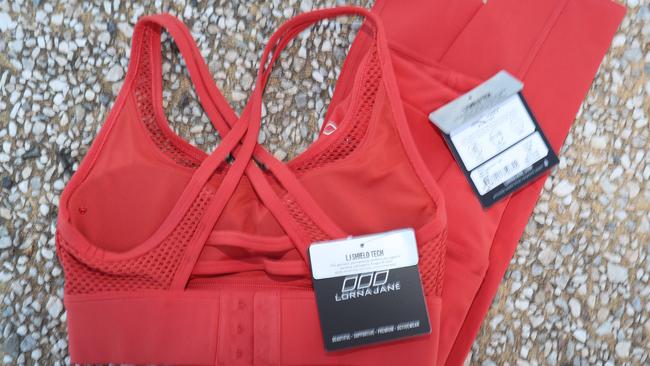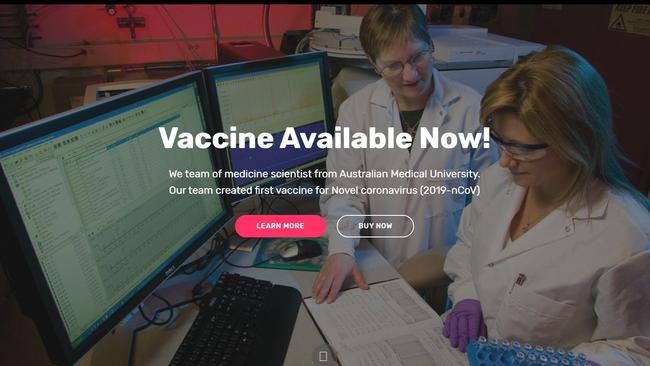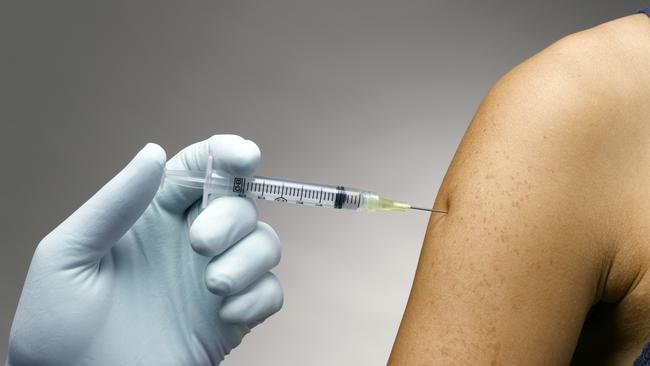Coronavirus vaccine scam: Companies fined $500k
Desperate Aussies are forking out over $1600 to online “universities” claiming to offer up vaccines to the currently incurable virus, as Australian businesses have been fined over $500,000 for claiming to protect against the pandemic.
Police & Courts
Don't miss out on the headlines from Police & Courts. Followed categories will be added to My News.
Australians are being scammed out of tens of thousands of dollars for bogus health and medical products, as some gullible Aussies have even fallen for purchasing coronavirus “vaccines” online.
184 Australians last month offered up $58,297 for fraudulent medical related products, while statistics obtained from the Australian Competition and Consumer Commission’s (ACCC) Scamwatch show only 75 Aussies were scammed in the same time period last year, at a cost of under $8,000.
The shocking figures come as hundreds of Australians search desperately for a coronavirus ‘cure,’ while the Therapeutic Goods Administration (TGA) has dished out 58 penalty notices to 14 companies and four individuals – at an accumulative total of $529,000- for claiming their products defend against COVID-19.

Many of the fraudulent businesses traded online, and several claimed to sell coronavirus vaccines- a scam some Aussies are unfortunately still falling for.
Psychologist Dr Jacqueline Drew, an expert in Cyber Fraud from the Griffith Criminology Institute said unfortunately, newsworthy or wide spread events like the coronavirus pandemic will spark a scammer’s interest.
“Covid has created a lot of fear within the community, and we know that one of the things that works best for offenders in being successful is if they operate on this idea of taking advantage of people’s fear,” she said.
“The fear and the motivation of (a cure) overrides our sensibility. If you’re particularly vulnerable to the virus, or your family is vulnerable, you may have that inkling in the back of your mind that it’s a scam, but often times we think ‘well, this is worth giving it a go for that slight chance.”
One website claiming to sell a Covid vaccine had marketed itself as a health institute- that does not exist- called the Australian Medical University.

The website traded solely in the anonymous and mostly untraceable crypto currency, Bitcoin.
For the fake vaccine for one person, the website charged 0.1 Bitcoin- or the equivalent of just over $1,600.
The website offered a package deal, charging 0.18 Bitcoin- over $2,900 for two vaccines, or 0.26 Bitcoin- over $4250 for three vaccines.
“Not only does Bitcoin make it almost impossible to track the transaction, it also allows scammers to transfer money across the world, ”
Dr Drew said once the money leaves our jurisdiction, it’s very unlikely a scammer will ever be prosecuted.
Professor Johnson Mak, who studies viruses like HIV and COVID-19 at Griffith University’s Institute for Glycomics, said the quicker we accept there is no instant cure to COVID-19, the better off we will be.
“Part of this scamming phenomenon that we’re seeing is that we are desperate for answers, but there is no magic bullet,” he said.
“As a consequence, we just grab on to things, like this fake vaccine. We want to believe things even though we know they’re dangerous. Sometimes the risky behaviour will change dependant on circumstance.”
Prof Mak said he’d seen instances like this previously.
“We’ve seen this before,” he said.
“When you look back at HIV studies, sex workers- although they know that there’s a risk of HIV- are often willing to conduct high risk sexual activity if they can get more in terms of their payment in return. It’s because they do not necessarily see the immediate risk at the time, but are more concerned about whether they can put food on the table for their family.
“People need to understand that this is a pandemic for a reason, and if the problem could be solved, it would be solved already.”

Prof Mak said although frustrating, scammers using people’s fear to make money was not unexpected.
ACCC’s Deputy Chair, Delia Rickard, said a tell tale sign of a scam is if the product or cost of a product is too good to be true.
“It’s very simple at the moment in terms of COVID-19 cures and vaccines- none currently presently exist, so if you see an ad for that- it’s a scam, it’s as simple as that.”
She said when buying PPE or hand sanitiser, it was important to try a trusted website first, compare prices and read reviews.
Ms Rickard said other things to watch out for was if the website traded in crypto currency or other untraceable transactions like gift cards.
She also warned against clicking on pop up links, or visiting unfamiliar websites.
“If you think you’ve been scammed and you’ve handed over the credit card, let your bank know immediately, as soon as you’re suspicious … It’s crucial you let your bank know immediately because you may only be able to receive a charge back for a small amount of time.”
While the world continues to live through the coronavirus pandemic, the ACCC’s Scamwatch have released a lighthearted podcast called This is Not Your Life.
“For each episode, Julian Morrow interviews a so called surprised scammer about their greatest achievements and what they’ve done, it’s excellent laugh out loud stuff while we go through some really heavy things right now,” said Ms Rickard.
